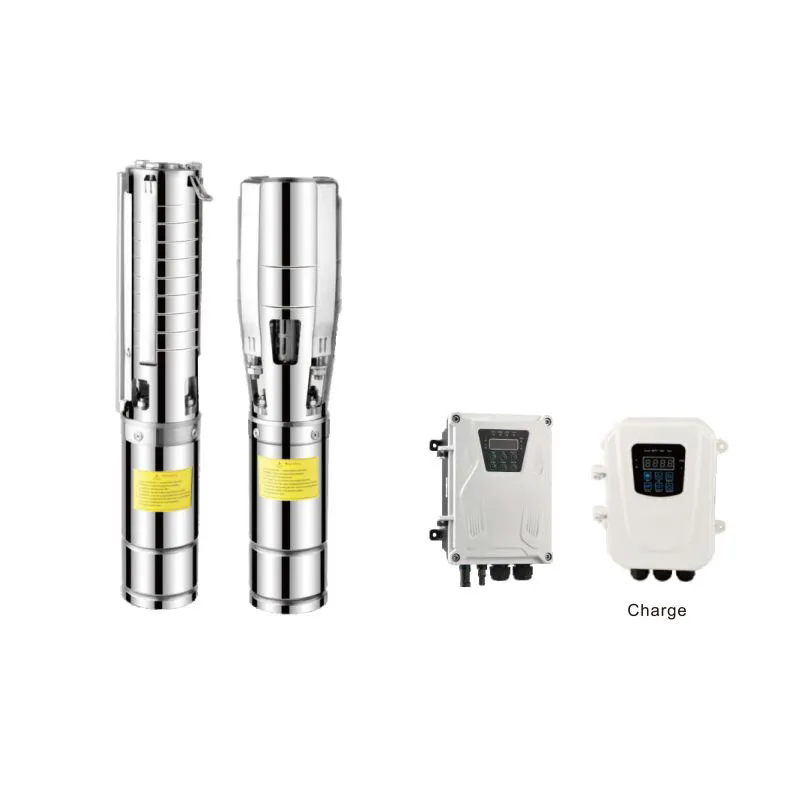Harnessing the Power of the Sun: The Benefits of a Solar Water Pump Set
2024-09-07
As the world continues to embrace renewable energy solutions, solar power is gaining traction as a sustainable and efficient option across various sectors. One of the most promising applications of solar energy is the solar water pump set, a system that uses solar power to pump water for irrigation, household use, livestock, or even small-scale water supply systems. In this blog, we will explore how solar water pump sets work, their benefits, and why they are becoming an essential tool for agriculture and remote water supply needs.
What is a Solar Water Pump Set?
A solar water pump set consists of a water pump that is powered by energy harvested from solar panels. It typically includes:
1. Solar Panels: These panels capture sunlight and convert it into electrical energy.
2. Pump Controller: This device manages the electrical flow from the solar panels to the water pump, optimizing power usage and ensuring consistent performance.
3. Water Pump: A submersible or surface water pump that draws water from a source such as a well, river, or lake and pumps it to the desired location.
4. Water Storage System: In many setups, water is pumped into a storage tank, ensuring a constant supply even when sunlight is limited.
How Does a Solar Water Pump Set Work?
The process begins with solar panels, which capture sunlight and convert it into direct current (DC) electricity. This power is then sent to the pump controller, which regulates the energy flow to the water pump. Depending on the design, the water pump can either be a submersible pump, used for drawing water from deep wells, or a surface pump, ideal for shallow water sources.
As long as the sun shines, the system operates continuously, providing a steady water supply. In some cases, solar water pump sets can be equipped with batteries or integrated with water storage tanks to ensure that water is available during cloudy days or at night.
Advantages of Solar Water Pump Sets
1. Eco-Friendly and Renewable
The primary benefit of solar water pump sets is that they are powered by the sun – a renewable, abundant, and clean energy source. By using solar power instead of conventional energy sources like diesel or electricity, these systems help reduce carbon emissions and lower the overall environmental impact.
2. Cost-Effective
While the initial investment in a solar water pump set may seem high, it is offset by the long-term savings. Traditional water pumps require electricity or fuel to operate, both of which can be expensive, especially in remote areas. Solar pumps, on the other hand, use free solar energy. Over time, this leads to significant savings on utility bills and fuel costs.
3. Low Maintenance
Solar water pump sets are designed for durability and minimal maintenance. With fewer moving parts compared to diesel or electric pumps, they are less prone to wear and tear. Additionally, solar panels are generally low maintenance, requiring only periodic cleaning to maintain efficiency.
4. Ideal for Remote and Off-Grid Locations
In rural or off-grid areas where electricity is unreliable or non-existent, solar water pump sets provide an excellent solution. They offer a self-sustaining system that can function anywhere the sun shines, making them a perfect choice for agricultural irrigation, livestock watering, or providing potable water to remote communities.
5. Versatility
Solar water pump sets are incredibly versatile. They can be used for a variety of applications, including:
- Agricultural Irrigation: Farmers can use solar water pumps to irrigate crops, reducing dependency on unreliable power sources and enhancing productivity.
- Livestock Watering: Solar pumps can easily provide water to livestock in remote grazing areas where electrical connections may not be available.
- Drip Irrigation: Combining a solar water pump with a drip irrigation system ensures efficient water use, ideal for arid regions where water conservation is crucial.
- Drinking Water Supply: Solar water pumps can be used to supply potable water to homes, villages, or small communities in remote locations.
6. Independence from Fossil Fuels
Unlike diesel-powered pumps, solar water pump sets rely entirely on solar energy. This eliminates the need for fuel and reduces dependence on fossil fuels. It also removes the logistical challenges of transporting fuel to remote areas, further lowering operational costs.
Applications of Solar Water Pump Sets
Solar water pump sets are widely used in several sectors:
- Agriculture: Solar pumps provide irrigation for crops, particularly in regions with little rainfall. They can also be used for greenhouse irrigation and hydroponics.
- Domestic Water Supply: Solar water pumps provide clean drinking water to homes and villages, particularly in areas with limited access to water infrastructure.
- Livestock Watering: In remote grazing areas, solar pumps are used to supply water to animals, ensuring that livestock has access to fresh water even in isolated locations.
- Aquaculture: Solar water pumps can also be used in fish farming to maintain water levels and circulate water in fish ponds.
Conclusion
A solar water pump set is an eco-friendly, cost-effective, and highly efficient solution for water pumping needs, especially in rural and off-grid locations. With the rising global emphasis on sustainability and renewable energy, solar water pumps are becoming an increasingly popular choice for a wide range of applications, from agricultural irrigation to providing clean drinking water in remote areas.
Whether you're a farmer looking to reduce operational costs or a community seeking reliable access to water, a solar water pump set offers a durable and sustainable solution. With little maintenance, no fuel dependency, and long-term financial benefits, solar-powered water pumps are paving the way toward a greener, more self-sufficient future.



